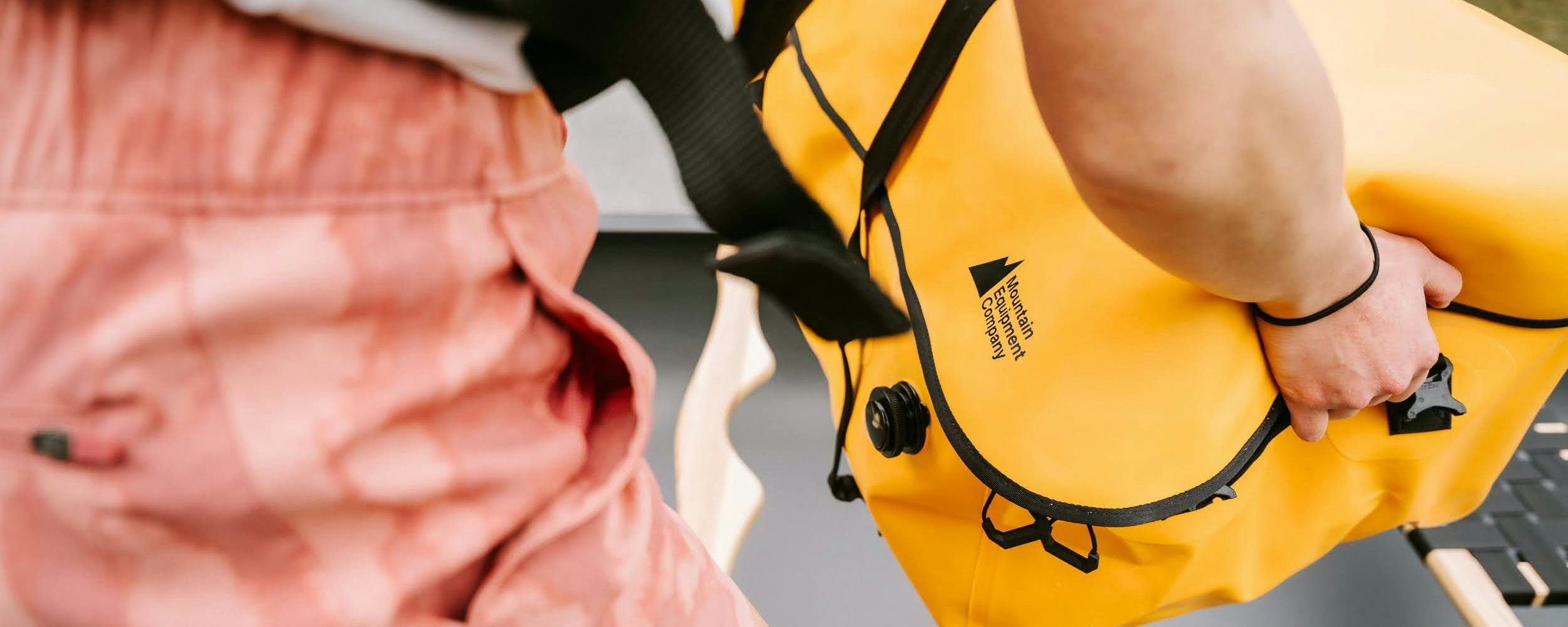Being smart about how we package MEC Label products can help keep waste out of the landfill. Over the years, the MEC Label team has found ways to cut down (or cut out) packaging for products when they’re shipped from factories. We also use recyclable materials so members can recycle packaging instead of it ending up in the landfill.
Cutting out plastic bags from factories
One of our biggest wins has been “sushi-roll” packaging. When the majority of MEC Label garments are shipped from factories, factories roll and tie each item instead of wrapping items in individual clear plastic bags called polybags (which are unfortunately very common in shipping). Other items are just loosely packed without polybags.
We’ve been cutting out polybag packaging since 2010, and ship only with a single plastic carton liner to protect from moisture damage in transit. So far, our efforts mean we’ve eliminated the need for more than 18.7 million polybags.
Recycled hang tags
Hang tags are the paper info tags attached to products. Today, over 80% of MEC Label product hang tags are made from 100% post-consumer recycled paper, which saves energy and water, and reduces greenhouse gas emissions.
No plastic bags in stores
When a member walks out the door with a product, we continue cutting out single-use plastic waste. MEC eliminated single-use shopping bags from our stores in 2008. No single-use shopping bags means we keep about 3.4 million single-use bags out of the landfill each year.
Recycled content in packaging
We often think about packaging primarily as a waste issue, but it overlaps with climate change too. The higher the percentage of recycled content in our packaging, the fewer virgin materials need to be extracted to make it. Plastic packaging is created from fossil fuels, and recycled plastics help keep fossil fuels buried deep in the ground. For paper packaging, recycled paper means more trees can continue to pull carbon emissions out of the atmosphere.
What’s next for packaging
Our quality assurance and production teams are looking at each MEC Label product to see if there are ways to reduce the environmental impact for packaging, while still making sure the product is protected when it’s shipped from the factory to MEC. As a retailer, we sell brands other than MEC Label. While we don’t have direct control over how other brands choose to package their products, we do share what we’ve learned in the hopes of influencing others to reduce packaging in the world of retail.

